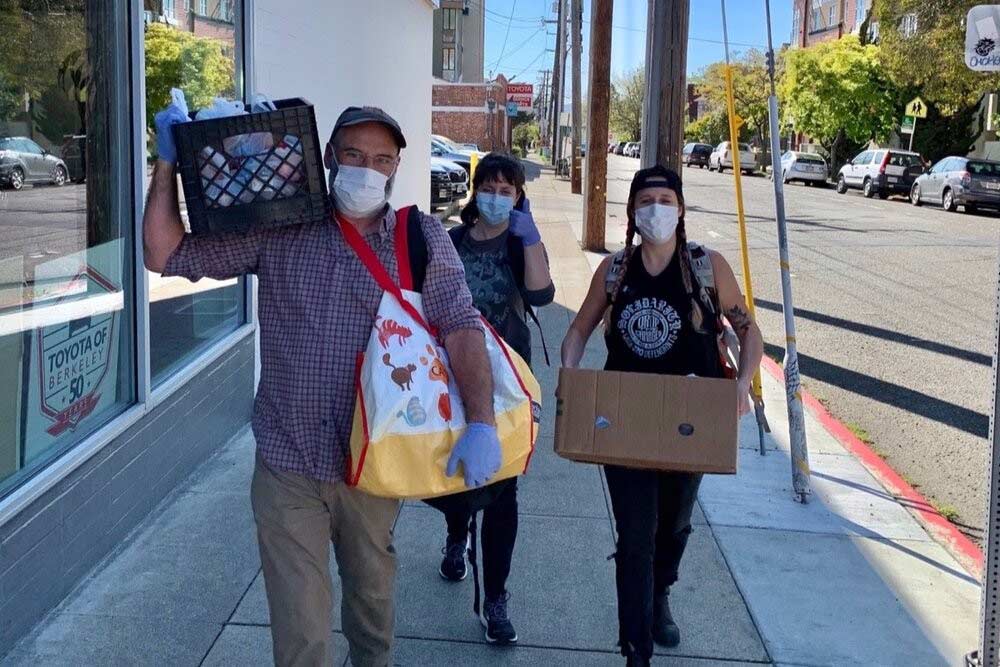January 7, 2022
It was the deadliest year in Oakland in more than a decade, with upwards of 130 homicides, each robbing us of a son, a sister, a friend. The number of unhoused people seemed only to swell, in parks and on streets, even as homes become still harder for most to afford. COVID’s omicron variant has surged, threatening a hard-won downturn in cases. Theft from our businesses — including mom-and-pop stores — has taken a new and violent turn amid organized crime swarms. There are moments where hope seems like the most unaffordable commodity of all.
Yet a closer look reveals signs that should give us all hope for 2022. Grabbing far fewer headlines are young and sometimes quiet efforts, in many of our hardest-hit neighborhoods, determined to change this grim reality. Dr. King once said. “Change does not roll in on the wheels of inevitability, but comes through continuous struggle.” We are in this struggle together, and only together will we make a better Oakland.
It’s time for public-private partnerships to come together and support bold ideas that invest in our most vulnerable communities, where too many people have struggled for far too long. Here’s what some of that hard work looks like, and why, despite the drumbeat of loss, I’m genuinely hopeful for this new year.
Take one effort, in deep East Oakland in the shadow of Interstate 880, to transform employment, community safety and the environment in a single project. Planting Justice has taken an abandoned plant nursery and is turning it into a state-of-the art aquaponics farm. The new farm will provide fresh organic produce for the local community and create more than 20 full-time living wage jobs (starting at $19/hour, with benefits) for returning citizens and others with structural barriers to employment. Planting Justice recidivism rate among formerly incarcerated employees is less than 3%, compared to roughly 76% within five years in the US.
East Oakland’s Black Cultural Zone Community Development Corporation is another effort working to preserve our rich culture and diversity by building a coalition of residents, government agencies, churches, and grassroots organizing and community groups to help keep Black folks in East Oakland. Through their strategy of building power, securing land and directing more dollars to community driven projects, they’re securing a foothold in East Oakland that will allow the neighborhood to thrive.
Other organizations are feeding the hungry and offering wraparound services to Oaklanders who need it most. Community Kitchens’ restaurant partners, for example, prepare meals in collaboration with over 10 community-based organizations that distribute and serve meals to the hungry. Their meals go out daily to nourish the bodies and spirits of those struggling to feed themselves. These meals are, in turn, used as a bridge for community-based organizations to connect food recipients with other public benefits programs and services. Since March 2020, when COVID first hit, Community Kitchens has provided over 100,000 meals to the unhoused and distributed more than $1 million to more than 50 local restaurants, allowing them to keep their doors open and retain their staffs.
ESO Ventures, an East Oakland early-stage entrepreneurial fund and incubator that focuses on empowering Black and Brown entrepreneurs, will give real opportunity to new and existing entrepreneurs who are too often excluded from financial services. They are managing an $8 million fund from the state of California to develop, launch and scale small businesses in East Oakland. The fund will focus on 200 talented entrepreneurs in an effort to address the racial wealth gap and make the dream of entrepreneurship more accessible and real for more Californians.
These home-grown initiatives targeting homelessness, hunger, racial and financial barriers are making a difference for those who need it most. They are all signs that Oakland is resilient and that the genius to solve our problems lies right here in our own community. Through public and private partnerships, we can innovate for lasting change.
Oakland is unique, rich in culture and diversity. We’ve overcome difficult moments before — including times when the plague of violence was greater and more costly. We need to have faith in ourselves and each other, and hold fast to the belief that change can happen. But this work, and programs like them, need more support now. We’re investing in ideas that offer new and creative solutions to decades-old problems, then scaling what works to policy and permanence because we know we don’t have time to waste. We must move boldly and swiftly forward.
Looking at the incredible work being done by our partners and community leaders, I see Oakland standing tall. I see it in the faces of the kitchen workers handing out meals to those left behind, the community leaders battling gentrification, and the organic farmers hiring returning citizens to help produce fresh, healthy food for their neighbors. In their faces I see reason for optimism about Oakland’s future. And most important, I see hope.
– Juma Crawford, CEO of the Oakland Fund for Public Innovation

It’s time for public-private partnerships to come together and support bold ideas that invest in our most vulnerable communities, where too many people have struggled for far too long.

